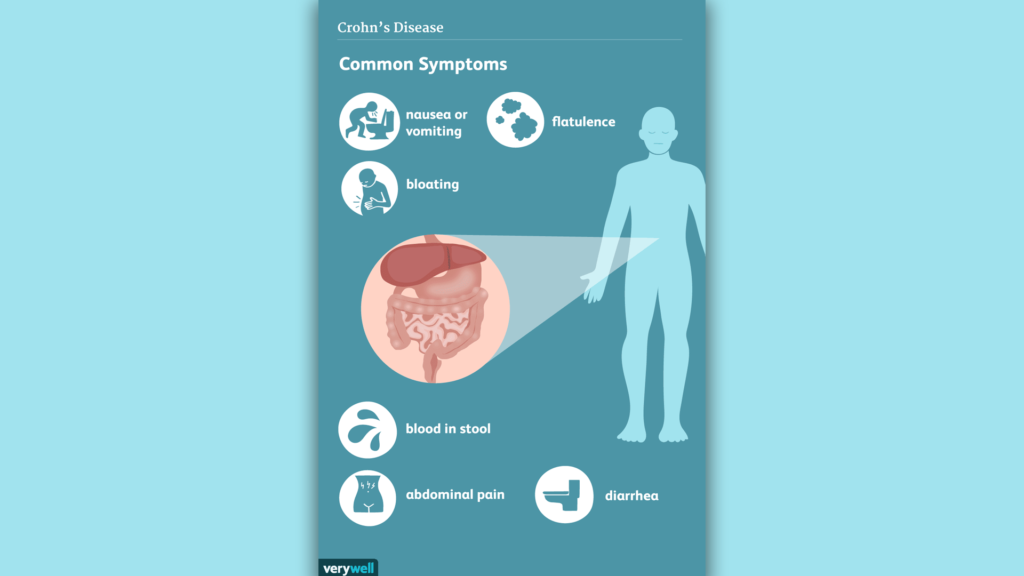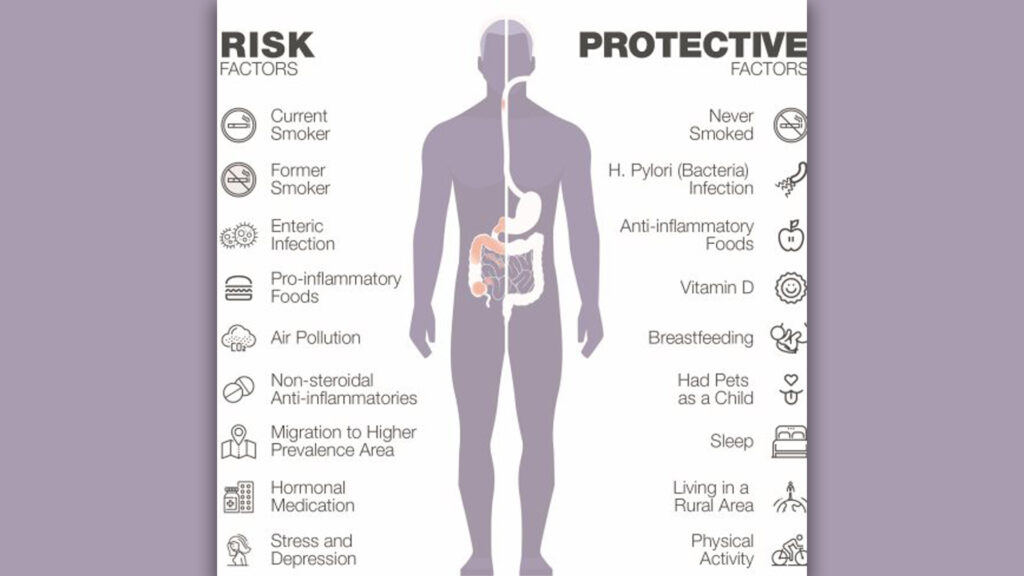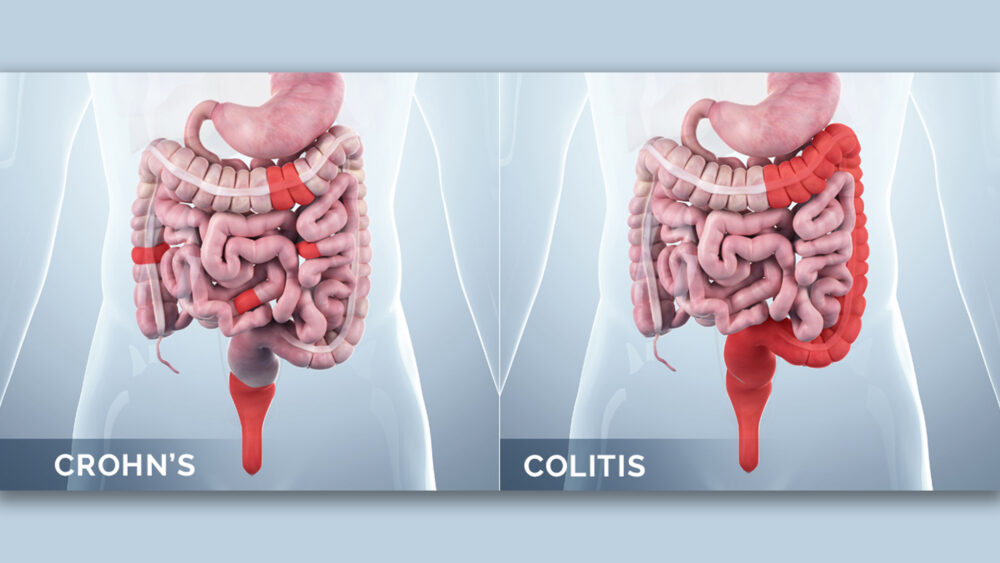Housecall’s host, David Doman. M.D. invites fellow Gastroenterologist Nikiya Asamoah, M.D. from MedStar Washington Hospital Center to discuss Inflammatory Bowel Disease (IBD). IBD is a chronic autoimmune disease characterized by intestinal inflammation which leads to bowel symptoms. According to CDC data, approximately 3.1million (or 1.3%) of Americans are living with IBD. This number continues to increase each year. There are two common forms of IBD, Ulcerative Colitis and Crohn’s disease. They are similar in presentation and treatment with some slight differences.
Differences of the 2 Forms of IBD-Ulcerative Colitis and Crohn’s Disease
Ulcerative colitis presents with inflammation that is limited to the colon or large intestine. Crohn’s disease can affect the entire gastrointestinal tract with inflammation commonly present in the small intestine and large intestine. Additionally, inflammation in Crohn’s disease can cause blockages(strictures) and inter-bowel connections (fistulas), which are not seen in Ulcerative colitis.
Common symptoms of IBD
Abdominal Pain
Bowel Urgency
Diarrhea
Fatigue
Rectal Bleeding
Extra intestinal inflammation may occur and includes joint pains and swelling, skin rashes and eye inflammation.

Differences of Inflammatory Bowel Disease (IBD) and Irritable Bowel Syndrome (IBS)
Irritable bowel syndrome is a functional bowel condition characterized by fluctuating bowel habits and associated mild to moderate abdominal pain. The most important difference is that the intestines look normal on colonoscopy and radiographical imaging in irritable bowel syndrome. However, there is an abnormality in the way the intestines function.
How is IBD diagnosed?
A combination of blood tests, stool samples and abdominal imaging are used to help diagnose IBD. However, a colonoscopy and possible endoscopy is required to definitively diagnose Crohn’s disease or Ulcerative colitis.
How is IBD treated?
There are multiple FDA approved medications for the treatment of both Ulcerative Colitis and Crohn’s disease. These range from pills, medication injections given every 2 weeks to IV infusions given every 2 months. The goal of these medications is to decrease the inflammation in the intestines. In some people, surgery may be necessary to remove a severely inflamed portion of the bowels.
Learn all about IBS like medications, dietary needs, flares, non-medication options, conceiving, insurance, and more in this episode with Dr. Asamoah.

Watch this episode of Housecall and learn everything you need to know about IBD below and subscribe to our YouTube channel!

